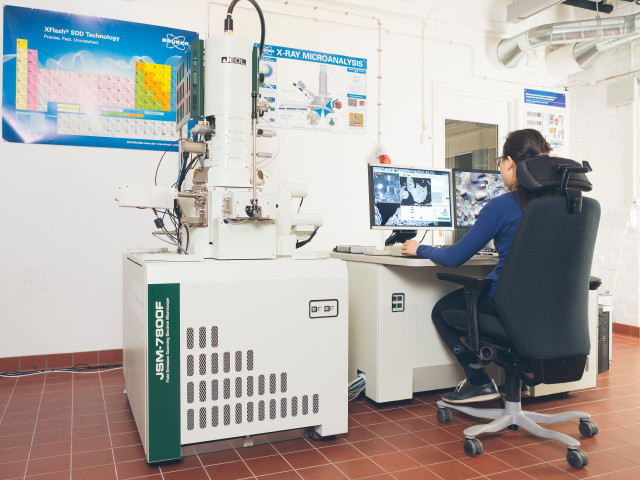Modelling of a complex industrial process can take place from a number of different sources including the geometry, flow physics, flow solutions, high performance computing and big data visualisation.
This implies that there still are major technical challenges to model industrial CFD applications. The principles of Computational Fluid Dynamics (CFD) will be dealt with during lectures and through integrated use of CAD and CFD software during computer exercises, to be able to solve, individually or in groups, an industrially relevant problem.
MH2280 Simulation and Modelling in Materials Processing 6.0 credits

Information per course offering
Course offerings are missing for current or upcoming semesters.
Course syllabus as PDF
Please note: all information from the Course syllabus is available on this page in an accessible format.
Course syllabus MH2280 (Autumn 2020–)Content and learning outcomes
Course contents
Intended learning outcomes
After passing the course, the student should be able to:
- Apply CAD and CFD simulation software for industrial flow phenomena
- Assess and evaluate the quality of numerical results and the efficiency of numerical methods
- Carry out detailed verification and validation analysis of CFD results
- Analyse the CFD results by means state-of-the-art visualisation tools
- Write a simulation report and present research results orally
Literature and preparations
Specific prerequisites
Basic knowledge of CFD modelling and simulation equivalent to the course MH2042 Simulation and Modeling Toolbox.
Recommended prerequisites
The course MH2042 Simulation and Modeling Toolbox or a similar basic FEM course
Literature
Examination and completion
Grading scale
Examination
- PROA - Project, 6.0 credits, grading scale: A, B, C, D, E, FX, F
Based on recommendation from KTH’s coordinator for disabilities, the examiner will decide how to adapt an examination for students with documented disability.
The examiner may apply another examination format when re-examining individual students.
If the course is discontinued, students may request to be examined during the following two academic years.
Examiner
Ethical approach
- All members of a group are responsible for the group's work.
- In any assessment, every student shall honestly disclose any help received and sources used.
- In an oral assessment, every student shall be able to present and answer questions about the entire assignment and solution.